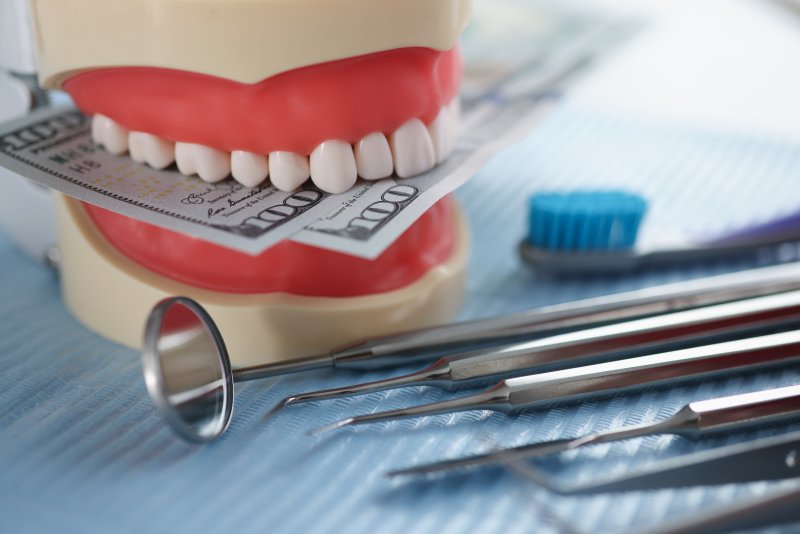
Based on what you’ve heard, dental implants may sound too pricey. What else would you expect from the gold standard of modern tooth replacement? However, the posts’ price actually varies a lot; their final cost depends on factors unique to the patient and their situation. That means you have plenty of chances to reduce your expenses and make treatment budget-friendly! To ensure that happens, read on to learn four key factors that affect the cost of dental implants.
Preliminary Services
At times, a patient may need preparatory treatments before they can get dental implants. These extra services raise the final treatment cost higher than it’d be otherwise.
Remember: you need good oral health to support dental implants. If your gum and bone tissues are too weak, they won’t be strong enough to hold the posts in place. The good news is that preliminary dental work can strengthen your mouth ahead of time. With gum disease treatment, bone grafts, and more, they’ll ensure you’re body is ready for dental implants.
Number of Dental Implants
As you may’ve guessed, the number of implants you get impacts your treatment cost. Adding more posts to the final tally will raise the cost of care.
You see, the final restoration is (partly) based on how many implants you need. It’ll likely take the form of single posts if you only get one to three implants. In contrast, it could be an implant bridge if you require four or more of the prosthetics. Either restoration would have different expenses attached.
Dental Implant Materials
When it comes to dental implants, not just any material will do. These posts need the right makeup to work and fuse with your jaw correctly. That said, the substances they can use have a range of prices.
Today, most dental implants can be made from two materials. The first is titanium – a strong metal that usually doesn’t cost much. Choice two is zirconium, which is a slightly pricey type of ceramic. Based on which you pick, your final dental implants will cost more or less.
The Dentist’s Financing Options
Last but not least, keep a dentist’s payment options in mind. The right one could help a dental implant treatment fit your budget.
For example, many practices now offer flexible financing. This option lets you work with 3rd party financiers – CareCredit, LendingTree, etc. – to pay for care in monthly installments. That way, you can cover a treatment’s cost gradually instead of all at once. This setup would be much easier to manage than paying a high price from the start.
Given the factors that affect the cost of dental implants, your treatment’s price will be unique. Talk to your dental provider for a precise estimate considering your needs.
About the Author
Dr. Robert C. Sikes is a highly experienced dentist in Mt. Pleasant, TX. Since earning his DDS from the Baylor College of Dentistry, he’s been providing patients with dental care for over thirty years. That history makes him skilled at preventive, cosmetic, and restorative treatments, as well as emergency oral care. Dr. Sikes currently practices at his self-titled clinic and is reachable on his website and by phone at (903)-572-9720.
